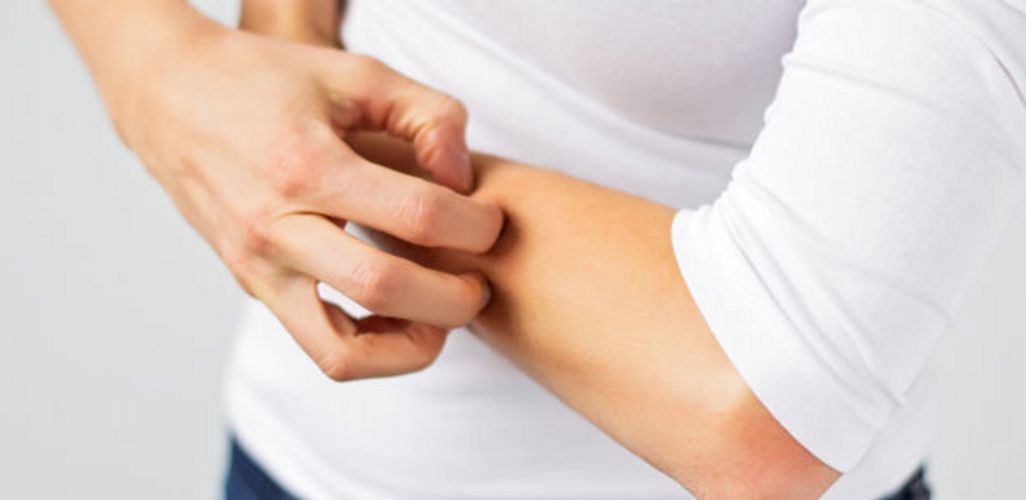During a recent camping trip in the beautiful Colorado mountains, I was reminded of just how much I dislike mosquitoes. While I can reconcile a purpose for almost all other creatures, the mosquito continues to baffle me. While the silence of the days, the thousands of stars visible in the night sky, and the smell of a campfire offer an amazing escape from city-living, I can’t help but think they’d be even more enjoyable if I wasn’t constantly whacking different areas of my body, or scratching the welts left by the little parasites that escaped my tedious surveillance. And while I did have my preferred brand of herbal-based mosquito repellent with me, it was rendered nearly useless when the pump broke, and pouring the liquid all over me became quite inefficient and wasteful. While mosquitoes are certainly annoying, there is also a lot of fear regarding their disease transmission potential. Mosquitoes have been known to carry a host of viruses, including Zika virus, Malaria, West Nile Virus, Eastern Equine Encephalitis, Western Equine Encephalitis, St. Louis Encephalitis, La Cross encephalitis, Dengue Fever, Yellow Fever, and others. Zika virus is of particular concern as of late, however according to the CDC, there have been no cases of Zika virus contracted within the United States. That being said, there have been reports of the virus being carried here from people who were bitten and infected in other countries, as well as in the US territories of Puerto Rico, the Virgin Islands, and American Samoa. So while there doesn’t seem to be as high of a risk of humans contracting these diseases in the United States, it certainly doesn’t hurt to act preventatively. In 1944, the military began using a chemical during jungle warfare to ward off disease carrying mosquitoes. This chemical was called N,N-Diethyl-meta-toluamide, and became more commonly known as “DEET” when it was introduced to commercial bug repellents in 1957. DEET has been repeatedly found to be effective at deterring mosquitoes, but there has also been some apprehension regarding its abundant use, especially in young children and pregnant and lactating women. While substantiating evidence for these areas of unease have been somewhat inconclusive, there has been some more recent research to suggest that there may actually be some cause for concern regarding DEET use. Two studies in the last month highlight some of the potential negative side effects related to DEET exposure. One study, published in Scientific Reports, supplied evidence to suggest that DEET could stimulate endothelial cells in the body to release increased amounts of certain factors that promote angiogenesis (1) – a process by which new blood vessels are formed to supply extra nutrients to growing tissues. This is most notable, and concerning, as a critical step in the growth of tumors.The data is therefore suggestive that DEET could perpetuate tumor formation. Another study, published in the Journal of Medical Entomology, showed that when mosquitoes were exposed to DEET, it only reduced the amount of blood they ingested over 24 hours (with most of the effect lasting between 3 and 6 hours). However, it did not affect their landing and “probing” behavior (2). The concern here is that if a mosquito doesn’t suck as much blood as it normally would at the time it feeds, it is more likely to land and re-feed sooner than normal, which could result in an increase in number of bites, and therefore a potentially elevated risk of disease transmission. DEET has also been implicated in Gulf War Syndrome, possibly as a result of it being mixed with other harmful chemicals. So while the research surrounding DEET seems to be somewhat limited, as with all chemically synthesized compounds it’s never a bad idea to exercise a bit of skepticism and caution. Regardless of research, many people still prefer to be as natural and synthetically free as possible, which usually equates to herbal or other folk remedies. There have, in fact, been numerous studies done, mostly recent, on the mosquito repelling effects of various botanicals. This research lends support to the use of many herbal repellents including catnip (3) clove oil (4-5), makaen oil (5), Dong qui (6), geranium (7), peppermint (8), citrus (9), and others. Most of the research states that these oils produce as effective of a repelling action as DEET, often times providing complete protection for 2-5 hours. Just two weeks ago (at the same time that I was providing sustenance for numerous mosquitoes), online media reports started blasting even more support from the CDC that lemon eucalyptus oil was just as effective as low concentrations of DEET at deterring these pesky beasts. Further inquiry on my part revealed that this comparison was actually made at a 2005 CDC press release (10), suggesting that there has been acceptance of these products as legitimate repellents for some time. As a side note for those readers who are essential oil lovers, the CDC does not recommend using pure lemon eucalyptus essential oil that hasn’t been formulated as a repellent, as it’s efficacy has not been validated. It is also important to note that Eucalyptus oil should not be applied topically (or internally) to children under the age of 3, and caution should be taken with pregnant women as well. Clearly there are some exciting possibilities with Nature’s own home-made bug repellents, but it’s also worth considering whether some of these remedies would be regional in their effectiveness, as the mosquito populations in different regions are likely also varied in their distaste for certain odors. Regardless, it’s interesting and refreshing to know that, especially for those of us who hold a particular appeal to mosquitoes, there are numerous options available for warding them off. Once again, let’s give Mother Nature a well-deserved pat on the back and head on up to the hills. Extra! For those interested in knowing more about the type of bug spray I prefer, it’s called Summer Survivor and was formulated by a Banff Park Ranger. I carry it for sale in my office in both a regular and extra strength form for humans, one for your canine companions, and one for your equine friends. Please feel free to call my office or email if you are interested in purchasing some. Also, a fun little remedy I recently learned and tried with great success (for when you do get bit) – try heating a spoon under hot water and then touch the back of it to the bite. It stings for just a second but takes the itch away for hours.
References:
(1) Legeay S, Clere N, Hilairet G, et al. The insect repellent N,N-diethyl-m-toluamide (DEET) induces angiogenesis via allosteric modulation of the M3 muscarinic receptor in endothelial cells. Scientific Reports. 2016;6:28546. doi:10.1038/srep28546.
(2) Sugiharto VA, Grieco JP, Murphy JR, et al. Effects of Preexposure to DEET on the Downstream Blood-Feeding Behaviors ofAedes aegypti(Diptera: Culicidae) Mosquitoes. Journal of Medical Entomology. June 2016. doi:10.1093/jme/tjw066. Epublished ahead of print
(3) Gkinis G, Michaelakis A, Koliopoulos G, Ioannou E, Tzakou O, Roussis V. Evaluation of the repellent effects of Nepeta parnassica extract, essential oil, and its major nepetalactone metabolite against mosquitoes. Parasitology Research. 2014;113(3):1127-1134. doi:10.1007/s00436-013-3750-3. Epub 2014 Jan 22
(4) Shapiro R. Prevention of Vector Transmitted Diseases With Clove Oil Insect Repellent. Journal of Pediatric Nursing. 2012;27(4):346-349. doi:10.1016/j.pedn.2011.03.011.
(5) Trongtokit Y, Rongsriyam Y, Komalamisra N, Krisadaphong P, Apiwathnasorn C. Laboratory and field trial of developing medicinal local Thai plant products against four species of mosquito vectors. The Southeast Asian journal of tropical medicine and public health. 2004;35(2):325-333. https://pubmed.ncbi.nlm.nih.gov/15691131/
(6) Champakaew D, Junkum A, Chaithong U, et al. Assessment of Angelica sinensis (Oliv.) Diels as a repellent for personal protection against mosquitoes under laboratory and field conditions in northern Thailand. Parasites & Vectors. 2016;9(1):373. doi:10.1186/s13071-016-1650-y.
(7) Ali A, Murphy CC, Demirci B, et al. Insecticidal and biting deterrent activity of rose-scented geranium ( Pelargonium spp.) essential oils and individual compounds against Stephanitis pyrioides and Aedes aegypti. Pest Management Science. 2013;69(12):1385-1392. doi:10.1002/ps.3518.
(8) Chauhan N, Malik A, Sharma S, Dhiman RC. Larvicidal potential of essential oils against Musca domestica and Anopheles stephensi. Parasitology Research Parasitol Res. 2016;115(6):2223-2231. doi:10.1007/s00436-016-4965-x. Epub 2016 Feb 26.
(9) Misni N, Nor ZM, Ahmad R. New Candidates for Plant-Based Repellents AgainstAedes aegypti. Journal of the American Mosquito Control Association. 2016;32(2):117-123. doi:10.2987/moco-32-02-117-123.1. (10) CDC,. Http://Www.Cdc.Gov/Media/Pressrel/R050428.Htm. 2005. Web. 13 July 2016.



